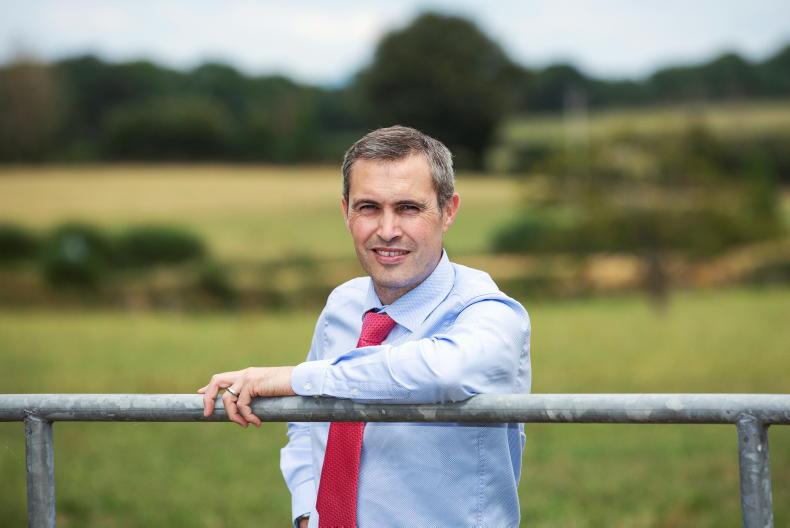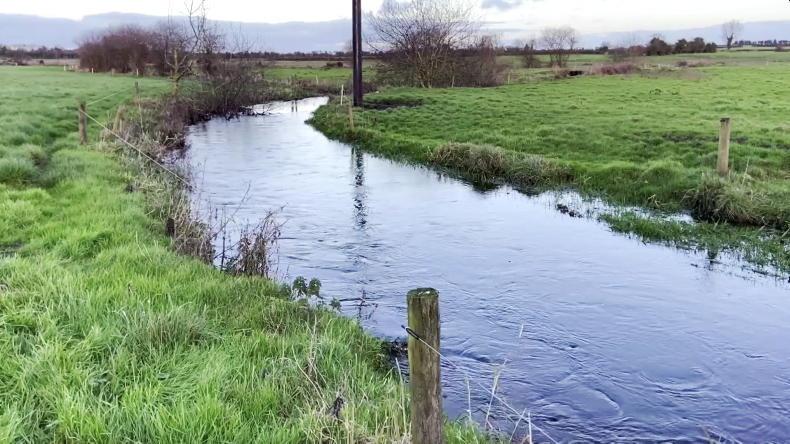Derogation farmers will have to rent an extra 68,000ac of land or cull 52,000 cows to meet new nitrogen limits, according to an impact analysis.
Tighter rules around the nitrates derogation will force affected farmers to either rent an additional 21.5ac of grazing ground on average or cull 16 cows.
Impact analysis modelling by the Irish Farmers' Association (IFA) indicates that a reduction in the organic nitrogen (N) limit for derogation farms from 250kg/ha to 220kg/ha will cost farmers €18,300 on average, where they are unable to rent additional land and are forced to cull cows.
The average cost is reduced to €6,500 where farmers can rent land. However, this figure is based on a land rental price of €750/ha or €300/ac. Grazing ground is currently making between €400/ac and €500/ac.
Meeting
The impact analysis was presented at an Irish Farmers Journal nitrates information meeting in Corrin Mart, Fermoy, on Monday evening by IFA director of policy Tadhg Buckley.
Buckley told the meeting that modelling indicated that the proposed changes to the nitrates directive will directly affect 3,200 of the 6,800 derogation farmers.

Tadhg Buckley, IFA director of policy.
However, the IFA official warned that the changes will also have a significant impact across the entire livestock sector, by driving up both the level of demand and the price of rental land.
Buckley estimates that the nitrates changes will force the 3,200 affected derogation farmers to rent an additional 68,000ac (21.5ac on average) of grazing ground or cull more than 52,000 dairy cows (16 animals on average).
Assuming a 50/50 mix of additional land rental and reduced cows, Buckley forecast that the reduced organic N limit will result in milk output falling by 157m litres nationally. This would cost the industry around €236m.

Recent initiatives are having a positive impact on water quality.
However, the IFA policy director pointed out that the costs associated with the nitrates changes, at both farm and industry level, were based on figures for the 2019 to 2021 period and would be far higher if based solely on 2022 prices.
While Buckley admitted that water quality levels declined during the period from 2015 to 2020 - albeit from a high level - he contended that recent initiatives were having a positive impact.
He forecast a significant increase in the number of farmers applying for the nitrates derogation in the future, despite admitting that the measure was attracting increased focus at national and European levels.
See this week's Irish Farmers Journal for full coverage of the issue.
Derogation farmers will have to rent an extra 68,000ac of land or cull 52,000 cows to meet new nitrogen limits, according to an impact analysis.
Tighter rules around the nitrates derogation will force affected farmers to either rent an additional 21.5ac of grazing ground on average or cull 16 cows.
Impact analysis modelling by the Irish Farmers' Association (IFA) indicates that a reduction in the organic nitrogen (N) limit for derogation farms from 250kg/ha to 220kg/ha will cost farmers €18,300 on average, where they are unable to rent additional land and are forced to cull cows.
The average cost is reduced to €6,500 where farmers can rent land. However, this figure is based on a land rental price of €750/ha or €300/ac. Grazing ground is currently making between €400/ac and €500/ac.
Meeting
The impact analysis was presented at an Irish Farmers Journal nitrates information meeting in Corrin Mart, Fermoy, on Monday evening by IFA director of policy Tadhg Buckley.
Buckley told the meeting that modelling indicated that the proposed changes to the nitrates directive will directly affect 3,200 of the 6,800 derogation farmers.

Tadhg Buckley, IFA director of policy.
However, the IFA official warned that the changes will also have a significant impact across the entire livestock sector, by driving up both the level of demand and the price of rental land.
Buckley estimates that the nitrates changes will force the 3,200 affected derogation farmers to rent an additional 68,000ac (21.5ac on average) of grazing ground or cull more than 52,000 dairy cows (16 animals on average).
Assuming a 50/50 mix of additional land rental and reduced cows, Buckley forecast that the reduced organic N limit will result in milk output falling by 157m litres nationally. This would cost the industry around €236m.

Recent initiatives are having a positive impact on water quality.
However, the IFA policy director pointed out that the costs associated with the nitrates changes, at both farm and industry level, were based on figures for the 2019 to 2021 period and would be far higher if based solely on 2022 prices.
While Buckley admitted that water quality levels declined during the period from 2015 to 2020 - albeit from a high level - he contended that recent initiatives were having a positive impact.
He forecast a significant increase in the number of farmers applying for the nitrates derogation in the future, despite admitting that the measure was attracting increased focus at national and European levels.
See this week's Irish Farmers Journal for full coverage of the issue. 







 This is a subscriber-only article
This is a subscriber-only article










SHARING OPTIONS: